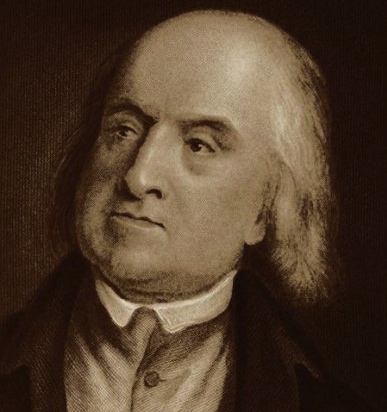 Jeremy Bentham (1748-1832) was an English philosopher, jurist, and social reformer who proposed then-radical ideas about government, social organizations and human nature.
Jeremy Bentham (1748-1832) was an English philosopher, jurist, and social reformer who proposed then-radical ideas about government, social organizations and human nature.
In his Introduction to the Principles of Morals and Legislation he argued that the creation of the greatest happiness for the greatest number of people should be the basis for both personal ethics and state acts - a philosophy that would come to be known as Utilitarianism.
Bentham worked for political, legal, prison, and educational reform. He advocated individual and economic freedom, the separation of church and state, freedom of expression, equal rights for women, the right to divorce, animal rights, and the decriminalisation of homosexuality. He also called for the abolition of slavery, corporal punishment, and the death penalty. His Deontology, or the Science of Morality was placed on the Vatican's Index of Prohibited Books.
Bentham's religious skepticism was expressed in three little-known publications. Under his own name he published Church-of-Englandism and its Catechism Explained (1818). This was followed by two pseudonymous works: Not Paul, but Jesus (1823), a New Testament criticism published under the name "Gamaliel Smith"; and a collaboration with the historian George Grote (1794-1871) entitled Analysis of the Influence of Natural Religion on the Temporal Happiness of Mankind (1822), published under the name "Philip Beauchamp".
FURTHER READING
Behold the Antichrist: Bentham on Religion (2004) by Delos B. McKown.